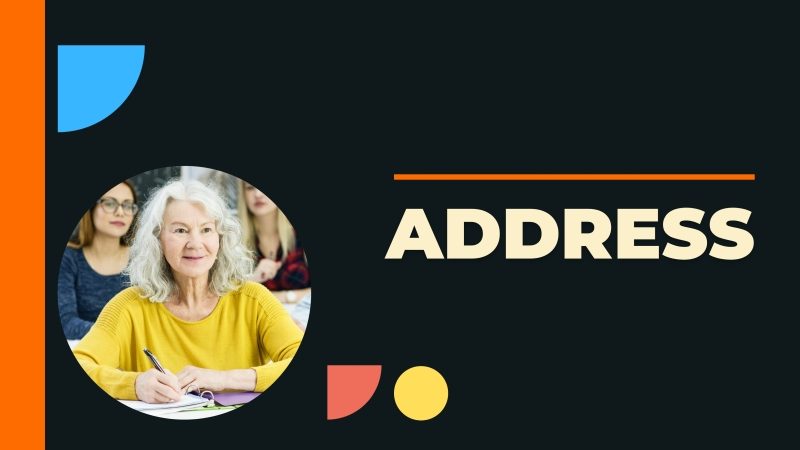If you have been learning English for a while now, you must’ve realized there are many words that have more than one meaning! This can be tricky at the beginning, but it is part of what makes the language beautiful.
Ready to discover some interesting words with more than one meaning? Let’s go!
What is a Homonym?
A homonym is a word that is spelled and pronounced the same but has different meanings. Sometimes, the same word can work as a verb and a noun. There are no changes in pronunciation or in spelling, but the meaning varies.
Homonyms are not the same as homophones (words that sound the same but are written differently) and homographs (words that are written the same but are pronounced differently.)
For a word to be a homonym, both the writing and the pronunciation must be the same.
This sounds a bit complicated, but fret not! It is easier than it seems! Let’s take a closer look at some examples to clarify homonyms for you.
Address

The word address has two different meanings. On one hand, it refers to a location. On the other, it is a verb meaning to talk to someone. For example:
We need you to add your address to the shipping information.
The Queen addressed the nation in her yearly televised speech.
Bat

You must know the beloved dark night: Batman! And as you know, his name comes from that little nocturnal animal that can fly. And still, you also know that to play baseball, you need a bat!
Let’s see some examples:
One of my father’s most precious items is his baseball bat from college. Apparently, he had a promising career until he got injured.
I don’t really like bats. It has nothing to do with the blood-sucking legends or vampires. I just find them ugly.
Bright

The word bright can be used to describe both a brilliant person and a space filled with light! For example:
Jake is the brightest kid I know. He will go to college and maybe become a doctor or a lawyer!
The room was so bright Anne could barely see something. The light was hurting her eyes.
Current

If you watch the news, you are up to date with current events! This word can describe something that is actual, and for its other meaning, it can refer to the flow of water. For example:
Our current boss is really mean. He likes to make fun of the employees and always has hurtful remarks.
The current of the river is too strong to cross. We could be dragged by it! We’d better go back and find another way.
Drop

When used as a noun, drop means a little quantity of fluid, like a drop of rain. When used as a verb, drop means to let something fall. Let’s see a couple of examples:
You have to eat all of your soup, until the very last drop! That will make me very happy.
We saw her in the corridor. She dropped her books, and Mike helped her pick them up.
Express

If you go to a coffee shop and are in a rush, you need your order to be express! This word refers to a fast version of something. Its other meaning refers to letting your thoughts and feelings out. For example:
Jeannie said we needed to have an express dinner because we were running late for the theater.
I am not very good with words so I like to express myself using songs! If someone has already expressed deep feelings with music, why not take advantage of it?
Fall

When October arrives, it’s fall season! Fall is a synonym for Autumn when talking about the seasons of the year. Yet, when use as a verb, it means to descend because of the force of gravity. For example:
Some people love spring, and some love summer. Personally, I love fall! The color of the leaves always amazes me.
Maya broke her arm when she fell down the stairs. It was terrible. She missed a step and then rolled down.
Park

Park can be either a verb or a noun! If you read about Central Park, you would have no doubts, right? And if you read about a parking lot? As a verb, the word park means to stop a vehicle in a specific place. As a noun, it refers to an enclosed space that could be either natural or man-made.
Let’s take a look at some examples!
Sheila loves taking her dogs to the park every weekend. That way, they can amuse themselves, and she can walk a little bit!
One of the most difficult things, when you are learning to drive, is learning how to park. You can get really nervous if you cannot see clearly the distances.
Using context to detect homonyms
As you have seen in the list above, recognizing homonyms can be a bit tricky. After all, they are exactly the same! However, context can be your best ally here.
Instead of focusing on the individual word, try to draw meaning from context. It will help you better understand the phrase you read and give the correct sense to the word.
Isolated words can be more complicated. Use context as your ally and you will never misunderstand a word!
Wrapping Up
English is a beautiful language with a rich vocabulary that can help you express whatever you want! Instead of dreading homonyms, think about them this way: If you learn one word, you have already learned at least two!
Use homonyms to take your English level to the next step and keep on discovering curiosities about the language. Being curious will always be one of your best allies when learning a language! Happy learning.